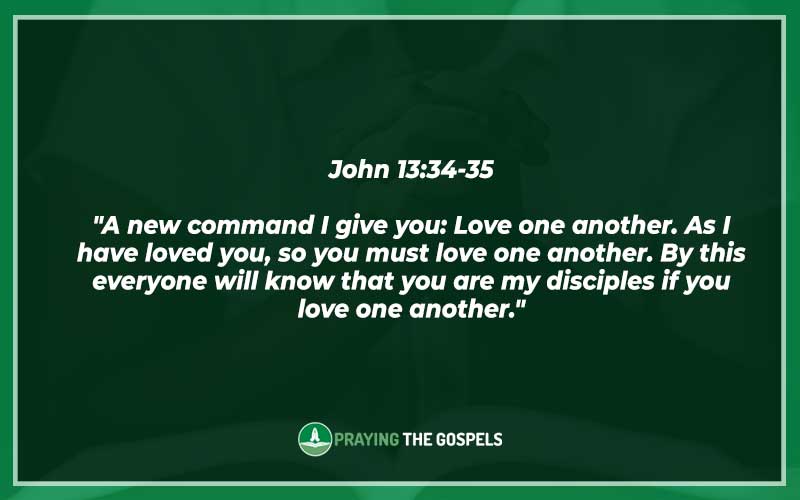The Bible is a source of wisdom and guidance for us, offering words of comfort and inspiration in times of need. When it comes to the concept of acceptance, the Bible has numerous passages that speak about the importance of accepting ourselves and others.
These powerful verses can provide comfort and guidance as we navigate through the challenges of life. In this blog post, we will explore some of the most uplifting and powerful Bible verses about acceptance.
Whether you are struggling with self-acceptance or accepting others, these verses offer valuable insight and guidance.
Bible Verses About Acceptance
Matthew 11:28-30
“Come to me, all you who are weary and burdened, and I will give you rest. Take my yoke upon you and learn from me, for I am gentle and humble in heart, and you will find rest for your souls. For my yoke is easy and my burden is light.”
This verse reminds us of Jesus’ invitation to come to Him and find rest. It emphasizes acceptance by assuring us that we are welcomed and cherished by Jesus, regardless of our weariness and burdens. Acceptance here means finding comfort and solace in His presence, understanding that He is gentle and compassionate, and finding rest for our weary souls in Him.
John 6:37
“All those the Father gives me will come to me, and whoever comes to me I will never drive away.”
In this verse, Jesus affirms that whoever comes to Him will never be rejected or cast away. It speaks to the unconditional acceptance and love that Jesus offers to all who seek Him. Our heavenly Father desires for us to come to Jesus, and in doing so, we can have the assurance of His eternal acceptance and presence in our lives.
Ephesians 1:6
“To the praise of his glorious grace, which he has freely given us in the One he loves.”
This verse highlights God’s grace that He freely gives to us through Jesus Christ. Acceptance is seen in God extending His unmerited favor to us, showering us with His love and forgiveness. It emphasizes that our acceptance by God is not based on our own efforts or merits but solely on His grace and love for us.
Galatians 3:28
“There is neither Jew nor Gentile, neither slave nor free, nor is there male and female, for you are all one in Christ Jesus.”
This verse underscores the acceptance that we experience in Christ, regardless of our ethnic background, social status, or gender. In Him, all believers are united as one, with no distinctions or barriers existing between us. It reminds us that acceptance in Christ transcends human divisions and emphasizes unity and equality among believers.
Romans 15:7
“Accept one another, then, just as Christ accepted you, in order to bring praise to God.”
This verse encourages believers to accept one another, following the example set by Christ. Acceptance here means embracing and welcoming fellow believers without judgment or prejudice. It reminds us that our acceptance of one another reflects God’s love and brings honor and glory to Him.
1 Timothy 1:15-16
“Here is a trustworthy saying that deserves full acceptance: Christ Jesus came into the world to save sinners—of whom I am the worst. But for that very reason, I was shown mercy so that in me, the worst of sinners, Christ Jesus might display his immense patience as an example for those who would believe in him and receive eternal life.”
This verse showcases the acceptance and redemption that Christ offers to sinners. It highlights the truth that no one is beyond God’s mercy and grace. The apostle Paul, acknowledging his own sinfulness, recognizes that he was accepted and shown mercy by Jesus. It serves as a reminder that no matter how unworthy we may feel, Jesus accepts us and desires to transform our lives through His love and forgiveness.
John 8:7
“When they kept on questioning him, he straightened up and said to them, ‘Let any one of you who is without sin be the first to throw a stone at her.'”
This verse depicts a powerful scene where Jesus demonstrates acceptance and mercy when a woman caught in adultery is brought before Him. It showcases His willingness to forgive and not condemn. Here, acceptance is seen in Jesus’ refusal to pass judgment and His reminder that none of us are without sin. It serves as a reminder for us to approach others with a humble and accepting attitude, realizing our own need for grace.
Luke 5:31-32
“Jesus answered them, ‘It is not the healthy who need a doctor, but the sick. I have not come to call the righteous, but sinners to repentance.'”
In this verse, Jesus acknowledges that He came for sinners, demonstrating His acceptance and invitation to all who recognize their need for repentance. Acceptance here means recognizing our brokenness and turning to Jesus, who offers healing, forgiveness, and transformation. It reminds us that no one is beyond the reach of God’s love and grace.
1 Peter 2:9
“But you are a chosen people, a royal priesthood, a holy nation, God’s special possession, that you may declare the praises of him who called you out of darkness into his wonderful light.”
This verse highlights the acceptance and identity we have in Christ. It describes believers as a chosen people, set apart for God’s purposes. Acceptance here means being embraced as God’s special possession, with a purpose to declare His praises and shine His light in the world. It reminds us of our worth and significance in God’s eyes.
John 13:34-35
“A new command I give you: Love one another. As I have loved you, so you must love one another. By this everyone will know that you are my disciples if you love one another.”
These verses capture Jesus’ command to love one another as He loved us. Acceptance is seen in the call to love others unconditionally and sacrificially, just as Jesus has loved us. It emphasizes that our love for one another is a powerful witness to the world, revealing our identity as followers of Christ.

Romans 12:16
“Live in harmony with one another. Do not be proud, but be willing to associate with people of low position. Do not be conceited.”
This verse encourages believers to live in harmony with one another, demonstrating acceptance by actively seeking unity and peace. It emphasizes our need to humbly relate to others, regardless of their social status. Acceptance here means avoiding pride and arrogance, treating everyone with respect and dignity.
James 2:1
“My brothers and sisters, believers in our glorious Lord Jesus Christ must not show favoritism.”
James reminds us that as believers, we should not show favoritism or partiality. Acceptance is seen in treating everyone equally, without discrimination based on external factors such as wealth, status, or appearance. It calls us to embrace an attitude of acceptance and inclusivity, mirroring the heart of Christ.
Philippians 2:3-4
“Do nothing out of selfish ambition or vain conceit. Rather, in humility value others above yourselves, not looking to your own interests but each of you to the interests of the others.”
These verses encourage believers to practice humility and selflessness in their interactions with others. Acceptance is seen in valuing and considering the needs and interests of others above our own. It challenges us to have a mindset of acceptance and genuine care for those around us, mirroring the selfless love of Christ.
Romans 14:1
“Accept the one whose faith is weak, without quarreling over disputable matters.”
This verse exhorts believers to accept those with weaker faith and avoid unnecessary disputes over non-essential matters. Acceptance here means patiently and graciously embracing fellow believers, even if they have differing opinions or convictions. It reminds us of the importance of unity within the body of Christ and the need to prioritize love over minor disagreements.
1 Corinthians 12:12-13
“Just as a body, though one, has many parts, but all its many parts form one body, so it is with Christ. For we were all baptized by one Spirit so as to form one body—whether Jews or Gentiles, slave or free—and we were all given the one Spirit to drink.”
These verses paint a vivid picture of the unity and acceptance that exists within the body of Christ. Acceptance is seen in the recognition that we are all part of one body, regardless of our backgrounds or social statuses. It emphasizes that through the Holy Spirit, we are united as one, with each member playing a significant role and deserving of acceptance and honor.
Romans 12:10
“Be devoted to one another in love. Honor one another above yourselves.”
This verse highlights the call for believers to be devoted to one another and to honor one another above ourselves. Acceptance is seen in the attitude of selfless love and respect that we extend to one another. It encourages us to prioritize the well-being and value of our fellow believers, fostering an atmosphere of acceptance and unity within the body of Christ.
Hebrews 13:1-2
“Let mutual love continue. Do not neglect to show hospitality to strangers, for by doing that some have entertained angels without knowing it.”
These verses capture the importance of showing mutual love and hospitality to others. Acceptance is seen in our willingness to welcome and care for strangers, extending kindness and warmth. The verse also reminds us of the potential divine encounters that can happen when we embrace acceptance and hospitality towards others.
Colossians 3:13
“Bear with each other and forgive one another if any of you has a grievance against someone. Forgive as the Lord forgave you.”
This verse emphasizes the acceptance that comes from extending forgiveness to one another. Acceptance here means being patient and willing to forgive, just as the Lord has forgiven us. It encourages us to cultivate an environment of grace and understanding within our relationships, reflecting the acceptance and forgiveness we have received from God.
Matthew 25:35-36
“For I was hungry and you gave me something to eat, I was thirsty and you gave me something to drink, I was a stranger and you invited me in, I needed clothes and you clothed me, I was sick and you looked after me, I was in prison and you came to visit me.”
These verses illustrate acceptance through acts of compassion and kindness towards those in need. Acceptance is seen in our willingness to meet the practical needs of others, recognizing and extending help to the marginalized and vulnerable. It reminds us that our acceptance of others is demonstrated through tangible acts of love and care.
1 John 4:7-8
“Dear friends, let us love one another, for love comes from God. Everyone who loves has been born of God and knows God. Whoever does not love does not know God, because God is love.”
These verses remind us of the inseparable connection between love and acceptance. Acceptance is seen in the love that originates from God and is expressed through us. It emphasizes that true acceptance is rooted in love, and those who truly know God will demonstrate love and acceptance towards others.

Romans 15:5
“May the God who gives endurance and encouragement give you the same attitude of mind toward each other that Christ Jesus had.”
This verse encourages believers to have the same attitude of mind towards each other as Christ Jesus. Acceptance is seen in the mindset of Christ, which involved humility, understanding, and empathy. It challenges us to adopt a Christ-like perspective in our interactions with others, extending acceptance and grace in our words and actions.
2 Corinthians 13:11
“Finally, brothers and sisters, rejoice! Strive for full restoration, encourage one another, be of one mind, live in peace. And the God of love and peace will be with you.”
This verse highlights the call for believers to strive for restoration and unity. Acceptance is seen in the pursuit of peace and encouragement within the body of Christ. It reminds us of the importance of acceptance in fostering an environment of love, peace, and the presence of God among His people.
These Bible verses provide a rich insight into the theme of acceptance. They reveal that acceptance is a core aspect of our faith in Christ. God’s acceptance of us, despite our shortcomings and sin, serves as the foundation for how we are called to accept and embrace one another.
Acceptance is not based on external factors or human distinctions but is rooted in the grace, love, and forgiveness of God. It challenges us to mirror Christ’s love by extending acceptance, kindness, and hospitality to all people.
Through acceptance, we create an atmosphere of unity, understanding, and compassion within the body of Christ, ultimately bringing glory and honor to God.
Also Read: 20 Important Bible Verses About Celebration
What Does the Bible Say About Acceptance?
In the Bible, the concept of acceptance is a multifaceted one that touches upon various aspects of human life and spirituality. It’s important to note that the Bible doesn’t use the term “acceptance” in the same way we might use it in modern language. However, the principles of acceptance can be found throughout its teachings.
Acceptance of God’s Love and Grace
The Bible emphasizes the importance of accepting God’s love and grace. One of the most famous verses on this topic is John 3:16 (NIV): “For God so loved the world that he gave his one and only Son, that whoever believes in him shall not perish but have eternal life.” This verse highlights that God’s love is extended to all of humanity, and accepting this love is the key to eternal life.
Acceptance of Others
The Bible also teaches us about accepting others, regardless of their backgrounds or shortcomings. In Galatians 3:28 (NIV), it states: “There is neither Jew nor Gentile, neither slave nor free, nor is there male and female, for you are all one in Christ Jesus.” This verse emphasizes the unity and equality of all believers, encouraging us to accept one another as equals in the family of God.
Self-Acceptance
While the Bible calls us to accept God’s love and others, it also encourages self-acceptance. Psalm 139:14 (NIV) says, “I praise you because I am fearfully and wonderfully made; your works are wonderful, I know that full well.” This verse reminds us that we are uniquely created by God, and we should accept ourselves as His wonderful creations.
Acceptance of God’s Will
Accepting God’s will for our lives is another important biblical principle. In Proverbs 3:5-6 (NIV), it advises, “Trust in the LORD with all your heart and lean not on your own understanding; in all your ways submit to him, and he will make your paths straight.” This verse encourages us to trust God’s plan and accept His guidance in our lives.
Forgiveness and Acceptance
The Bible teaches that forgiveness and acceptance go hand in hand. In Colossians 3:13 (NIV), it says, “Bear with each other and forgive one another if any of you has a grievance against someone. Forgive as the Lord forgave you.” Forgiving others is a form of accepting them despite their flaws and mistakes.
The Bible does not explicitly use the word “acceptance,” but its teachings emphasize accepting God’s love and grace, accepting others without prejudice, self-acceptance as God’s creation, accepting God’s will, and practicing forgiveness as a form of acceptance. These principles guide us in living a life of faith, love, and compassion.

